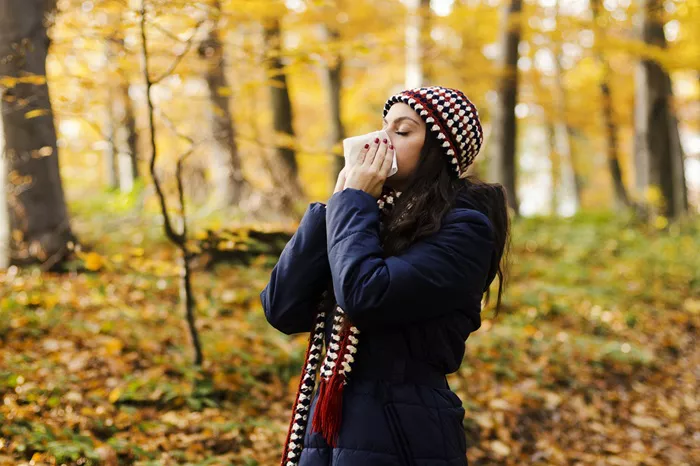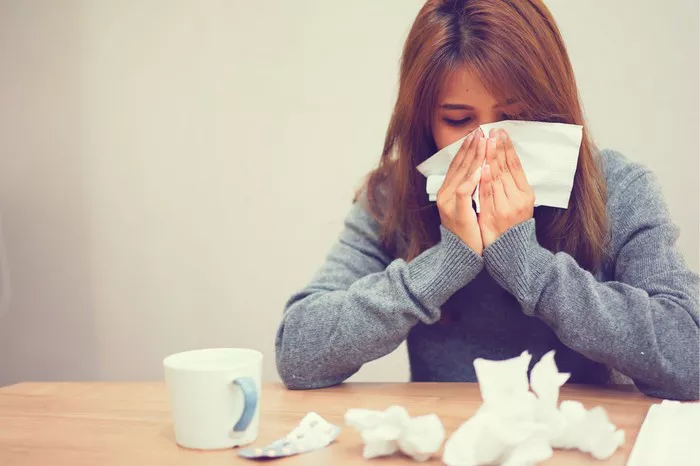Pollen allergies, often referred to as seasonal allergic rhinitis or hay fever, affect millions of people worldwide. These allergies occur when the immune system reacts to pollen from trees, grasses, and weeds, treating these harmless substances as threats. This article explores the duration of pollen allergies, the factors affecting their longevity, and effective strategies for management and relief.
Pollen Allergies
Pollen allergies are among the most common types of allergic reactions, impacting the daily lives of countless individuals during specific times of the year. The symptoms of pollen allergies can include sneezing, nasal congestion, itchy eyes, and throat irritation. Understanding the nature of these allergies and the duration of their effects is crucial for those seeking relief.
What Triggers Pollen Allergies?
Pollen allergies are triggered by the immune system’s response to airborne pollen particles from various plants. The severity and onset of symptoms depend on the pollen count in the air, which varies according to weather conditions, time of day, and geographical area.
Common Sources of Pollen Allergies
Tree Pollen: Common in early spring, including species such as birch, cedar, cottonwood, and pine.
Grass Pollen: Peaks during late spring and early summer.
Weed Pollen: Common in the autumn, with ragweed being the most notorious.
Duration of Pollen Allergies
The duration of pollen allergies can vary significantly based on several factors including geographical location, the specific pollen season, and individual sensitivity.
Seasonal Variations
Spring: Tree pollen tends to dominate the spring months, often starting as early as February in some regions and lasting until June.
Summer: Grass pollen takes over in many areas during the summer, typically from May through July.
Fall: Weed pollen, especially ragweed, can affect individuals from August to November.
Geographic Impact
The length of the pollen season can also differ widely depending on the climate and flora of a region. Warmer areas may experience longer pollen seasons, while colder regions might have a very brief or less intense pollen season.
Factors Affecting the Duration of Pollen Allergies
Individual experiences with pollen allergies can vary based on several factors:
Genetic Predisposition
Genetics can play a significant role in determining who will develop allergies and how severe they might be.
Climate Change
Increasing temperatures and extended seasons due to climate change can lead to longer and more intense pollen seasons, potentially prolonging the duration of allergy symptoms.
Environmental Exposure
Urbanization and pollution can exacerbate allergy symptoms and potentially extend the duration of discomfort.
Symptoms of Pollen Allergies
Understanding the symptoms is crucial for diagnosis and treatment:
Nasal Symptoms: Sneezing, congestion, runny nose.
Ocular Symptoms: Itchy, red, and watering eyes.
Throat Symptoms: Sore and itchy throat.
Other Symptoms: Fatigue, irritability, and decreased concentration.
Diagnosis of Pollen Allergies
Proper diagnosis typically involves:
Medical History: Discussing symptoms and their occurrence with a healthcare provider.
Physical Examination: Focusing on the nose, throat, and eyes.
Allergy Testing: Skin prick tests or specific IgE blood tests to confirm the allergy.
Treatment and Management Strategies
Effective management of pollen allergies is essential for improving quality of life during allergy seasons.
Avoidance and Environmental Controls
Reducing exposure to pollen can significantly decrease the duration and severity of symptoms.
Check Pollen Counts: Stay indoors on days when pollen counts are high.
Keep Windows Closed: Use air conditioning in homes and cars.
Shower After Being Outdoors: This helps remove pollen from skin and hair.
Medication
Various medications can alleviate symptoms:
Antihistamines: Help reduce sneezing, itching, and runny nose.
Decongestants: Relieve nasal stuffiness.
Nasal Corticosteroids: Effective for severe nasal symptoms.
Immunotherapy
For long-term relief, immunotherapy can be considered. This treatment involves regular injections or sublingual tablets of small amounts of allergens to build up immunity.
Coping with Pollen Allergies
Living with pollen allergies requires ongoing management:
Lifestyle Modifications
Simple changes in daily routines can help manage exposure and symptoms.
Psychological Impact
Chronic allergies can affect mental health, making support from family, friends, or professional counselors beneficial.
Alternative Remedies
Some individuals find relief in alternative remedies such as saline nasal rinses, herbal supplements, or acupuncture, though these should be approached with caution and discussed with a healthcare provider.
Conclusion
The duration of pollen allergies varies widely among individuals and depends on several factors including environmental conditions, personal sensitivity, and the specific pollen season. While completely avoiding pollen may not be possible, effective management through medication, lifestyle adjustments, and possibly immunotherapy can significantly reduce the duration and severity of symptoms. With the right strategies, individuals suffering from pollen allergies can enjoy spring and fall seasons with minimal discomfort.
[inline_related_posts title=”You Might Be Interested In” title_align=”left” style=”list” number=”6″ align=”none” ids=”8067,7947,7990″ by=”categories” orderby=”rand” order=”DESC” hide_thumb=”no” thumb_right=”no” views=”no” date=”yes” grid_columns=”2″ post_type=”” tax=””]
































